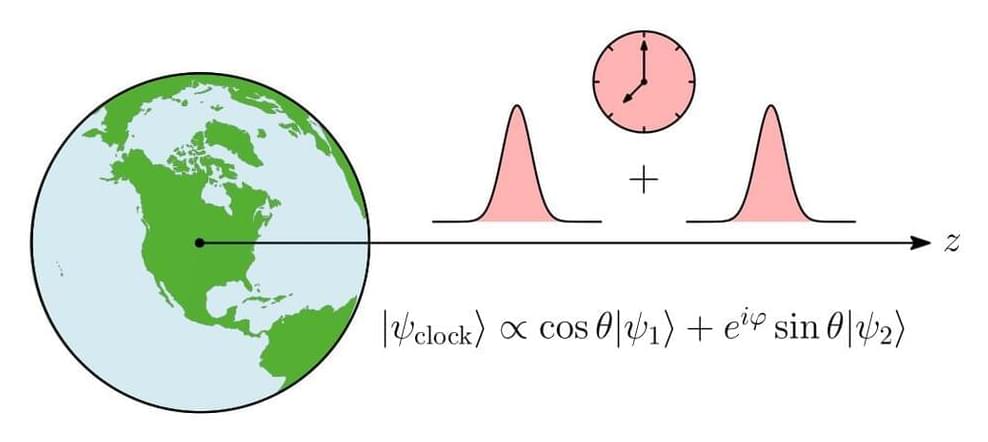Jerzy Paczos, Kacper Dębski, Piotr T. Grochowski, Alexander R. H. Smith, and Andrzej Dragan, Quantum 8, 1338 (2024). According to relativity, the reading of an ideal clock is interpreted as the elapsed proper time along its classical trajectory through spacetime. In contrast, quantum theory allows the association of many simultaneous trajectories with a single quantum clock, each weighted appropriately. Here, we investigate how the superposition principle affects the gravitational time dilation observed by a simple clock – a decaying two-level atom. Placing such an atom in a superposition of positions enables us to analyze a quantum contribution to a classical time dilation manifest in spontaneous emission. In particular, we show that the emission rate of an atom prepared in a coherent superposition of separated wave packets in a gravitational field is different from the emission rate of an atom in a classical mixture of these packets, which gives rise to a quantum gravitational time dilation effect. We demonstrate that this nonclassical effect also manifests in a fractional frequency shift of the internal energy of the atom that is within the resolution of current atomic clocks. In addition, we show the effect of spatial coherence on the atom’s emission spectrum.
